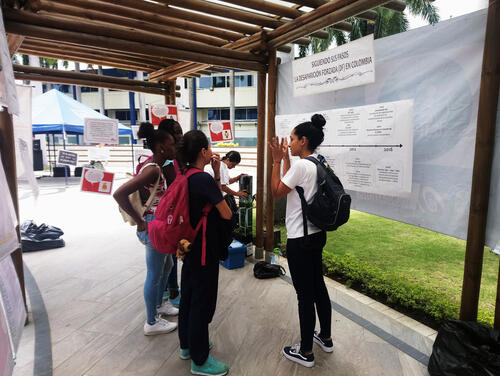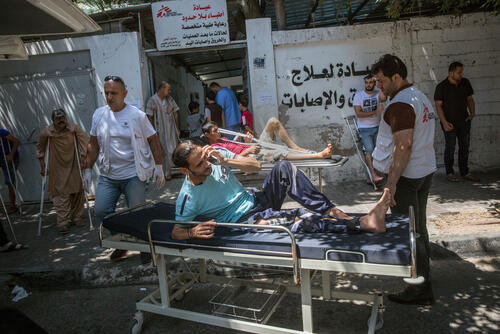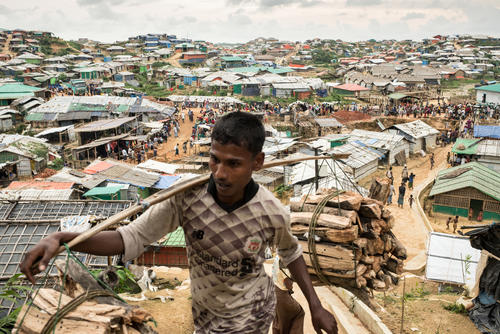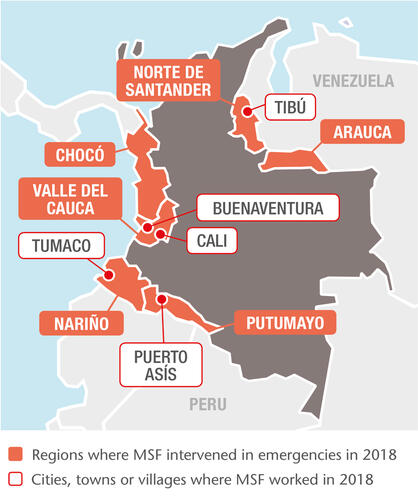
9,160
9,16
7,880
7,88
290
29
In spite of the peace process between the government and the FARC rebel group, there are still frequent outbreaks of violence in some areas of Colombia. Thousands of civilians are subjected to forced confinement or displacement due to clashes between armed groups and criminal organisations over territory, and many community leaders have been assassinated.
In 2018, our emergency team travelled to Chocó, Norte de Santander and Arauca to assist people displaced by the conflict and called for more aid to be delivered to the affected communities.
We also had teams working at crossing points on the border with Venezuela to assist Venezuelan migrants. We provided emergency medical care in locations such as La Gabarra, Hacarí, El Tarra and Puerto Santander. We later set up a team in the Regional Hospital of the North in Tibú, in Norte de Santander, to support Venezuelans living in the area without access to medical services due to their administrative situation in Colombia. Healthcare for children under five and pregnant women were the main focus of the teams’ activities.
In Cali and Puerto Asís, our teams offered psychological care and support from social workers to people whose family members had been forcibly disappeared during the years of conflict in Colombia.
More than 11,600 relatives of victims of forced disappearances participated in group activities run by MSF psychologists in 2018, and 443 benefited from individual and family interventions.
In Buenaventura, we provide psychological support for victims of violence, comprehensive care for victims of sexual violence, and termination of pregnancy for women who request it. MSF was one of the organisations that spoke out against a legislative initiative that sought (unsuccessfully) to restrict access to voluntary termination of pregnancy in Colombia.
We warned of the barriers – geographical, economic and cultural – that exist for women seeking safe abortions, even with liberal legislation in place that is protective of women’s rights. All of our projects in Colombia offer treatment for victims of sexual violence and termination of pregnancy on request.
In 2018, the teams in Buenaventura also offered emergency medical assistance and relief kits to indigenous and Afro-Colombian people who had been displaced from their communities in rural areas by conflicts between armed or criminal groups.
In addition, they ran a telephone helpline and mental health consultations in the neighbourhoods on the outskirts of the city affected by territorial disputes between criminal groups.
We completed our project in Tumaco, where we had been treating victims of violence, including victims of sexual violence, but we will retain a presence in the city as it will become the base for our emergency response team for Nariño and the surrounding area.

















